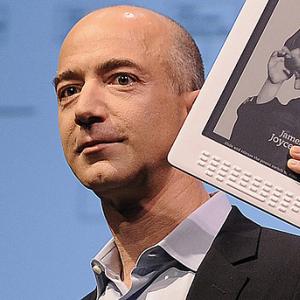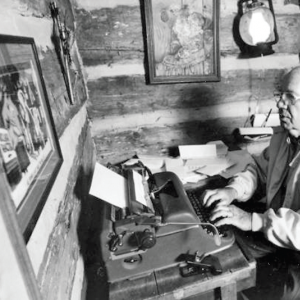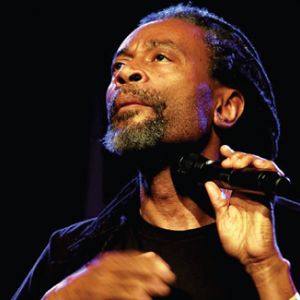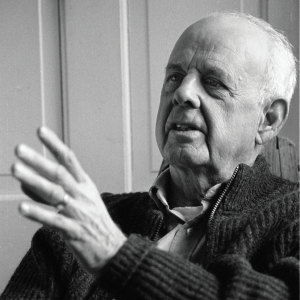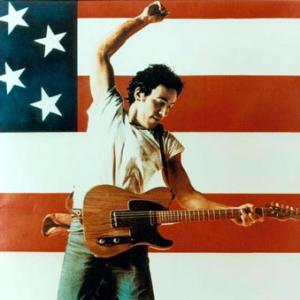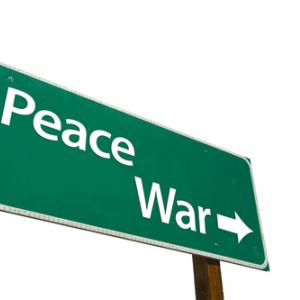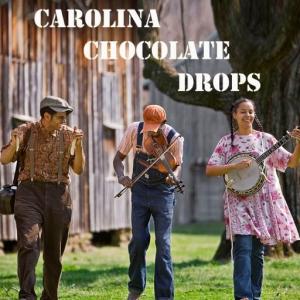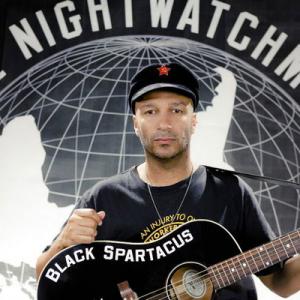
Danny Duncan Collum, author of the novel White Boy, teaches writing at Kentucky State University in Frankfort.
Posts By This Author
A Resurgence of the Real?
The e-book, the next big thing that was supposed to kill off the local bookstore, may have peaked.
I’VE BEEN thinking a lot lately about technological obsolescence. This isn’t because I’m a classroom teacher and professional writer—two occupations widely expected to meet the fate of John Henry. My musings have mainly been prompted by the hours I just spent weeding through my family’s extensive collection of cassette tapes. From 1992 to about 2005, my wife, Polly, and I made a sizeable investment in that doomed medium, mostly in the form of children’s audiobooks and home-school educational programs that our kids (now ages 14 to 21) have outgrown. We still have three functioning cassette players in our house, but then we still have a 22-year-old tube television, too. I don’t expect that anyone who has young children today would be willing to take on our collection of cassettes. Even Goodwill may refuse them.
Some things, like the cassette tape, deserve to become obsolete. They were always an inferior product. But, all the logic of the market economy to the contrary, newer is not always, or even usually, better.
That’s why it’s been heartening to witness, in the past year or so, the beginning of a small backlash against our forced march toward a future that is all-digital, all the time. The first sign of a revolt was the return of the vinyl record. Of course, I held on to my vinyl through all the transitions of the past 30 years, and we’ve always had a functioning turntable in the house. But now it is my 21-year-old son who actually buys vinyl. Of course, my son also has an iPod and does most of his listening through headphones, like the rest of his peers. But he and thousands of other young music buffs have learned that vinyl delivers a better sound than any of the digital formats currently on the consumer market.
An Ever-Flowing Stream
At peak usage, Netflix alone now accounts for one-third of all internet traffic in the U.S.
2013 WAS ANOTHER year when the future arrived. We’ve been having a lot of those lately. First there was 2010. According to the Project for Excellence in Journalism, that year more Americans got their news online than from reading a newspaper. Next, 2011 was the year when the internet started replacing not just the local bookstore, but books themselves. That’s when Amazon made more money from e-books than from real ones. The same thing happened in 2012, when revenue from music downloads surpassed that from the sale of recorded discs.
The newest future dawned last year when the American Academy of Television Arts and Sciences officially recognized that the internet was replacing TV. They didn’t say that, of course. The Academy just said that online streaming series, such as Netflix’s House of Cards andArrested Development, were eligible for Emmy Awards. For a little perspective here, the Emmys were once only for broadcast TV—the stuff you can get from a roof antenna. Cable productions became eligible in 1988, and last year not a single broadcast production was even nominated for the best drama award.
In the first year of internet eligibility, David Fincher won the best director Emmy for House of Cards. In case anyone still thinks that web TV is for has-beens and wannabes, in 2011 Fincher was nominated for the best director Oscar for The Social Network. Last fall, Doonesbury creator Garry Trudeau produced a series (Alpha House) for streaming on Amazon. For the record, Trudeau’s last television venture was Lucas Tanner for HBO, in 1988.
Net Neutrality: The Final Battle?
Will corporations and the courts turn our free and untidy marketplace of ideas into yet another exclusive gated community?
FOR SEVERAL years now, a debate has raged over the issue of “net neutrality,” pitting media reformers, digital libertarians, and “content” companies such as Amazon and Netflix against old-school telecommunication giants such as AT&T and Comcast, with the Federal Communications Commission serving as an erratic referee.
Sometime early this year, the U.S. Court of Appeals for the District of Columbia may settle the question when it decides the case of Verizon vs. the FCC. If the court decides in favor of Verizon, big telecom companies will have won the right to decide what digital content we can receive, especially when it comes to video and other bandwidth-intense media.
Simply put, the issue in the Verizon case is whether broadband internet will follow the “common carrier” precedent applied to telephone lines and the electricity grid or the model of cable TV. The common carrier principle guarantees equal access to necessary public utilities. Applied to the internet, this has meant that service providers simply supply the fiber-optic cable or wireless spectrum, give equal access to all content providers, and charge the final recipient of the data (you and me) a fee that covers the cost of maintaining an adequate network.
In the cable TV business model, the provider controls the network of fiber optic cable and the content that goes over it. The cable company decides which channels are included in the basic package, which (like HBO) are purchased separately, and which will be unavailable at any price. If you want Al Jazeera instead of Fox News, too bad—it’s a take it or leave it package.
A Benevolent Baron
The Post's credible voice for corporate centrism is a large part of what Bezos wants for his $250 million.
“I think it would be fun to run a newspaper.”
THE QUOTE IS from Charles Foster Kane, the character based on William Randolph Hearst in Orson Welles’ 1941 classic Citizen Kane. But it could have been Amazon kingpin Jeff Bezos this August when he bought The Washington Post. What can you get for the man who has everything? Maybe he’d like a newspaper to play with, preferably one with global political clout.
Unlike Charles Foster Kane or Rupert Murdoch, Bezos seems disinclined to monkey with the content of the Post’s coverage. His business interests may require certain government policy directions—i.e. free trade and no unions—but on those questions the Post is already with him. They differ on net neutrality (the concept that providers of internet access should not be able to discriminate against or give preference to specific internet service or content providers), so that will be one to watch. But Bezos comes to the Post saying he essentially agrees with the paper’s politics. In fact the Post’s reputation as a credible voice for corporate centrism seems to be a large part of what Bezos wants for his $250 million.
This may explain why Bezos, a titan of the rising digital world, would weigh himself down with an ancient “legacy” institution. It’s an old American story. When you get rich enough (Bezos’ fortune is estimated at $27 billion), you don’t want more money, you want power and respect. The same process played out with the robber barons in the last century. It’s just that today the evolution happens much faster. It took three generations for the Rockefellers to go from oil tycoons to philanthropists and politicians; contemporary barons such as Bezos and Bill Gates have made the switch within a couple of decades.
Learning from the Unspeakable
JFK's assassination provides us with lessons about the dangers of secret wars and unaccountable power.
NOVEMBER MARKS the 50th anniversary of the assassination of our 35th president, an event that defined the life of the baby-boomers—a generation that, by sheer force of numbers, still sucks up most of the oxygen in U.S. culture. There are new books, reissued books, documentaries, made-for-TV movies, and a new Hollywood production, Parkland, starring that Everyman of the baby boom, Tom Hanks. But, anniversary hoopla aside, the JFK assassination and its aftermath can also provide us with some very timely lessons about the dangers that come with secret wars and unaccountable power.
Fifty-nine percent of Americans don’t believe the official story that Lee Harvey Oswald alone killed President John F. Kennedy, and this time the majority is right. The available evidence strongly suggests that the president was the victim of a murder plot that involved anti-Castro Cubans, enraged by his failure to back them up during the Bay of Pigs invasion, and their allies in organized crime who had been heavily invested in pre-Castro Havana. That was the conclusion of the House Select Committee on Assassinations in 1978, which also found physical evidence of another shooter at the crime scene.
Of course, the armed anti-Castro forces in Florida were a bought-and-paid-for creation of our CIA, and the CIA was also working with organized crime figures in various plots to assassinate Castro. So it’s no great leap to suspect some complicity in Kennedy’s assassination by CIA employees. Some reasonable people, including peace activist and theologian James W. Douglass in his book JFK and the Unspeakable, have gone further, claiming that the Kennedy assassination was the result of a policy decision, taken at the very highest levels of the national security state, aimed at heading off JFK’s plans to pull out of Vietnam and end the Cold War. This theory relies heavily on National Security Action Memorandum 263, which laid out plans to begin withdrawing troops from Vietnam, and journalist Norman Cousins’ account of back channel diplomacy in the book, The Improbable Triumvirate: John F. Kennedy, Pope John, Nikita Khrushchev.
The Passing of a Prophet
"We're all bastards," Will Campbell wrote, 'but God loves us anyway."
IN HIS EULOGY at Baptist pastor, civil rights activist, and author Will D. Campbell’s memorial service in late June, Campbell’s close friend, journalist John Egerton, recalled their first meeting. Campbell was wearing the broad-brimmed black hat that became his signature, with jeans and cowboy boots. At the time, Egerton noted, Campbell was in the middle of “a costume change” from the tweed jacket, clerical collar, and calabash pipe he had affected as a young, Yale-educated liberal minister.
Campbell was a notoriously theatrical figure, as famous for his hats and walking sticks as for his theological pronouncements. In fact, in the 1980s Campbell became a cartoon character in the guise of Rev. Will B. Dunn in the late Doug Marlette’s “Kudzu.” Campbell also dramatized his own life in Brother to a Dragonfly, his National Book Award-nominated 1977 memoir, and in a 1986 sequel, Forty Acres and a Goat.
Another favorite prop in the Will Campbell show was the acoustic guitar he would strum while singing his own country compositions and old favorites like “Rednecks, White Socks, and Blue Ribbon Beer.” Campbell, who was based in Nashville from 1957 on, also became a sort of chaplain to the “outlaw” element in that city’s country music industry. He traveled on Waylon Jennings’ tour bus, and Jennings’ widow, country star Jessi Colter, sang at Campbell’s memorial.
Too Happy?
Bobby McFerrin's "don't worry" optimism sets up some serious cognitive dissonance with the spirituals.
IN THE PAST 150 years, the songs historically known as “Negro spirituals” have worn many costumes. They emerged, of course, from the Deep South during the days of slavery, when songs such as “Every Time I Feel the Spirit” or “Wade in the Water” were first sung by anonymous psalmists wielding hoes or pulling cotton sacks. Since that time they’ve been dressed in the style of the European art song, sung as grand opera, or even faithfully mimicked by well-meaning white folk singers.
The spirituals entered the mainstream of American culture through the performances of the Fisk Jubilee Singers from Fisk University in Nashville who, fresh out of slavery themselves, toured the North in the 1870s. In the 1950s and ’60s, the old standards were resurrected, and slightly rewritten, as marching songs for the African-American freedom movement and then echoed across the world as anthems for human rights from South Africa to Northern Ireland to Eastern Europe.
After all that, the spirituals can probably even survive being remade into “smooth jazz,” which is more or less what happens to them on Bobby McFerrin’s new album Spirityouall. Readers of a certain age might remember McFerrin as the guy who, in 1988, conquered the known pop music universe with an airheaded ditty called “Don’t Worry, Be Happy.” The tune was so infectious that it should have had a warning label from the Centers for Disease Control, but instead it dominated radio, won some Grammys, and, to McFerrin’s eternal horror, was used as theme music by the George H.W. Bush presidential campaign.
Cultivating a Better America
According to Wendell Berry, all you need to have hope is one good example.
WENDELL BERRY was on stage being interviewed by Bill Moyers when the old Baptist minister (Moyers) asked the unchurched Christian (Berry) about his faith. “The world is maintained every day by the force that created it,” Berry intoned solemnly. In the Old Testament, he noted, “Elihu says to Job, if God gathers his breath, all creatures fail. All creatures live,” Berry emphasized, “by breathing God’s breath, breathing his spirit. It’s all holy—the whole shooting match.”
At 78, Wendell Berry shows no sign of failing, either in his breath or his spirit. But the Kentucky writer-activist-farmer is already enjoying a sort of immortality as the namesake of a degree program in ecological agrarianism at St. Catharine College. In April, that small Catholic institution in Springfield, Ky., hosted a conference titled “From Unsettling to Resettling: What Will It Take to Resettle America?” in honor of the 35th anniversary of Berry’s landmark book, The Unsettling of America. The interview with Moyers was part of the conference program.
Drastically oversimplified, the thesis of The Unsettling of America held that two types of Europeans came to America. Elsewhere, citing his teacher Wallace Stegner, Berry has called them the “boomers” and the “stickers.” The boomers were the unsettlers. They moved into the New World, cut down the trees, extracted the minerals, used up the land, and then moved on in search of new places to despoil. The stickers, however, settled into a place and made it their own. They cooperated with the land and the local resources to make a life and a livelihood that could be sustained over generations. Our problem, Berry contended, is that in America the boomers, backed by the power of money, have for too long set the agenda and won most of the fights.
Love, Race, and History
Trethewey focuses her keen verbal gifts on the most sensitive nerve in American life.
WHEN U.S. POET Laureate Natasha Trethewey visited my day job at historically black Kentucky State University, she cleared up a couple of things about the honors and duties of her position. First she noted that, unlike her British counterpart, she does not receive a free cask of wine as part of her payment. But that’s okay, she says, because, unlike laureates of old, she also does not have to compose made-to-order poems to the glory of The State. The State should also be relieved at that, because Trethewey’s poetry, while obsessed with history and written in a plain-spoken and accessible style, also habitually exposes profoundly unsettling truths about us and our past, especially regarding race.
From her first book, Domestic Work, focused on the lives of working-class African Americans in the South, to her most recent, Thrall, which deals with images of interracial relationships from the 17th century to the present, Trethewey has focused her keen verbal gifts on the most sensitive nerve in American life. Trethewey comes by these obsessions naturally. She is the daughter of a white man, Eric Trethewey, himself a poet of some renown, and a black woman, Gwendolyn Turnbough, who was murdered when Trethewey was in college. Trethewey was born and grew up as a mixed-race child on the Mississippi Gulf Coast in the late 1960s and ’70s.
Owning the Future
"It's time to declare our opposition to this private theft of public culture."
IF THEY HAD met, Aaron Swartz and Vernon Bowman probably wouldn't have hit it off. The 26-year-old Brooklyn, N.Y. computer whiz and the 75-year-old Indiana grain farmer might have been from different planets. But they were brothers-in-arms in a historic struggle over the shape of the 21st century economy and culture. Each, in his own way, has challenged the iron, unyielding hegemony of copyright law that increasingly protects permanent, private, for-profit ownership of artistic creations, scholarly research, and the very processes of life itself.
Aaron Swartz won't be around to see the outcome of this struggle.
Swartz was a successful internet innovator who used his wealth and position to promote "free information." In 2008, he wrote a program that was used to liberate thousands of public-domain federal court records from a site that was charging 10 cents per page for their use. More recently he used his access to the M.I.T. computer network to execute a massive robo-download of millions of scholarly articles from the subscription database JSTOR. The idea was to make the scholarship available free.
After he was caught, JSTOR reached a civil settlement with Swartz that included his surrender of the hard drives containing the articles and then treated the case as closed. But federal prosecutors decided to throw the book at Swartz. He was under a felony indictment for computer fraud and facing a possible 35-year prison sentence. Finally, in January, Swartz, who had a history of depression, killed himself. His parents blamed overzealous prosecutors for his death.
Guns, Culture, and Sanity
Not everything that's fun is a constitutionally protected right.
I DON'T OWN any guns, and I've only fired them at inanimate objects, but I live in the country, so guns are a part of my life.
During deer season, the woods around our place sometimes sound like Baghdad circa 2006. We used to have a close neighbor who regularly fired a gun in his backyard, usually on Sunday afternoons—at what, we're not entirely sure. Our family has a three-legged dog that lost his right rear appendage to a gunshot wound. Our kids in Boy Scouts get gun safety training and rifle and shotgun shooting lessons in a program certified by the National Rifle Association.
So when the gun control debate heats up, as it has since the Sandy Hook School massacre, I come down with a serious case of mixed feelings. I think rural gun lovers are at least partly right when they say that urban gun control advocates look down on them as ignorant primitives. Many city people, and I'd dare say most urban liberals, don't understand the rural culture of hunting and shooting and can't be bothered to expend the moral energy that act of empathy would require. For me, that part of the gun control discussion pushes the same outrage buttons that go off when an economist says people in dying rural communities just need to move, or when someone else suggests eliminating all farm subsidies from the federal budget. Such comments betray the fact that the speakers neither know, nor care, about rural communities and rural culture.
On the other hand, fear of outsiders is also a part of rural culture. Groups like the NRA, and gun manufacturers themselves, have done a pretty good job of exploiting that flaw, to the point that some of my neighbors are convinced that they need assault weapons to defend themselves against some vague, unnamable "them." And my experience of rural life, which has all been in the South, confirms that this can apply doubly or triply to "outsiders" with a different skin color.
Air Wars
The best evidence against Murdoch is the existence of Fox News.
AS THIS IS written, the Federal Communications Commission is, again, preparing to rule on a revision of its media ownership rules that could, again, allow the few remaining mass media conglomerates to own even more of what are currently competing local news outlets. For one thing, the proposed revision would allow Rupert Murdoch's News Corporation to have its Los Angeles and Chicago TV stations and eat the L.A. Times and Chicago Tribune, too.
Five years ago, the Bush administration's FCC commissioners tried this move, but it was routed in a decision by a federal appeals court. But, just in time to quash any illusions that a second Obama administration might be less friendly to corporate power, Julius Genachowski, the Obama-appointed FCC chair, tried, at the end of 2012, to quietly slip in this new set of Murdoch-friendly ownership rules. The only reason it may not have happened already is because he raised the issue at the same time that an FCC report on minority media ownership arrived showing the share of outlets owned by people of color to be only 2.2 percent for commercial full-power television and 6.2 percent for commercial AM radio. This, needless to say, raises questions about the wisdom of further media consolidation.
Over the decades, this column has spilled a lot of ink on the subjects of the FCC, media policy, and, especially, media ownership. I haven't obsessed over these issues because of any love for the details of broadband allocation and other regulatory minutiae. In fact, I struggle to understand some of those matters just well enough to try and explain why they are important. But they are important, mostly because deregulated and monopolistic mass media impinge upon our ability to effectively exercise our God-given free will and participate rationally in the process of self-government.
People Get Ready
The "hope and dreams" in Springsteen's song are those of the immigrant, the refugee, and the runaway slave.
IT WAS THE first week of November 2012, and Bruce Springsteen was busy helping nail down a few swing states for President Obama. In the process, he expressed more enthusiasm than I could ever muster for the man who put Tim "The Fox" Geithner in charge of our financial hen house. But political quibbles aside, I remain convinced that what Springsteen actually does for a living is more important to the life of our country than the work of any living politician, and I saw living proof that very same week.
On the Saturday night before Election Day, Springsteen and his E Street Band dropped into Louisville, Ky. Of course, my wife, Polly, and I had to go, and we had to take our 12-year-old son, Joseph, who has become the fourth Springsteen-obsessed member of our family. It was my fifth time to see the show, and ever since I've been thinking of the poem in which Allen Ginsberg asked America, "When will you be worthy of your million Trotskyites?" Paraphrasing Ginsberg, I ask today, "America, when will you be worthy of your E Street Band?"
To me, going to see the E Street Band has become something like going to see a natural wonder, like Yellowstone or Mammoth Cave or, more to the point, the California redwood forests: Like the redwoods, it's growing older. The bark gets rougher by the decade, and some branches break off and fall to the earth. But Springsteen's great tree of American music is still growing in stature and substance. The band has become a cultural institution that spans races, genders, and generations and fittingly represents the sacred American musical tradition that has grown from the work songs, ring shouts, and spirituals of the slaves.
From the Archives: February 1987
Turning from old ways
IN THE U.S., the Cold War has served to justify a permanent wartime economy, blacklisting and surveillance of dissenters, and military interventions against smaller and weaker nations from Vietnam to Nicaragua. In the Soviet Union, it has been used to excuse a permanent state of economic austerity, the imprisonment and torture of dissenters, and military interventions from Hungary to Afghanistan. And on both sides the Cold War has provided the ideological underpinning and political momentum for a nuclear arms race that threatens the future of the entire human family. ...
As Christians our faith, security, and hope for a peaceful world can only be placed in the one true God, who is the creator and sustainer of all life and the Lord of history. The first and most essential commandment forbids us to trust the fate of God’s earth and generations unborn to the creations of finite, fallible, and fallen human beings.
Standing Up to Goliath
The Walmart workforce has begun to publicly rattle its chains.
THE MEDIA UNIVERSE has been dominated for months by election coverage. Meanwhile, out there in America, something has been happening that could, in the long run, be much more significant than any election. The Age of Walmart may be coming to the beginning of its end.
Cracks in the big blue hegemony have been showing up here and there for the past few years. The bribery scandal involving Walmart's Mexican subsidiary did some damage. So have the grassroots campaigns against new Walmart stores in Denver, Miami, New York, and even the college town of Athens, Ga. In Athens, the anti-Walmart banner has been hoisted by the local alt- rock community. Check out "After It's Gone," a music video attributed to Patterson Hood (front man of the legendary Drive-By Truckers) and the Downtown 13.
But all that was just foreshadowing. In October, here and there around the country, the Walmart workforce began to publicly rattle its chains. The movement started in September in the Walmart supply chain, first with strikes by seafood workers in Louisiana, then warehouse workers in Southern California and Elwood, Ill., all of whom went out because of unsafe or inhumane working conditions. Within a month Walmart "associates" had walked out of stores in Dallas, Southern California, the Bay Area, Sacramento, Seattle, Miami, the Washington, D.C. area, and Chicago. Two hundred of these striking workers demonstrated at corporate headquarters in Bentonville, Ark., during the annual meeting of Walmart investors.
Free-Speech Fundamentalism
Should America reconsider our open market in bigoted ideas?
DOES THE RIGHT to free speech include the right to yell “Fire!” in a crowded social network?
That’s one of the questions raised by the violent overreaction by some Muslims to the 14-minute YouTube video clip, Innocence of Muslims.
Of course, my question paraphrases the words of Supreme Court Justice Oliver Wendell Holmes in deciding that speech likely to cause immediate violence could be restricted. However, over the course of the 20th century, the American standard for limiting potentially harmful speech has gotten a lot tougher. For the past 50 years or so, it’s been settled law in the U.S. that the First Amendment protects speech that is, like Innocence of Muslims, false, hateful, malevolent, and even very badly written, acted, and produced. But the Internet Age is bringing new challenges to America’s free-speech fundamentalism.
Tolerance of blasphemous, racist, and defamatory material is commonplace to most Americans. We take it as one of our God-given rights. But, in fact, this is a real example of American exceptionalism. No other liberal democracy in the world protects speech that is plainly intended to wound and insult members of a specific racial or religious group. “Hate speech” prohibitions are the rule throughout the Western world.
How to Be Happy
Average Americans, the supposed winners of the global rat race, are overworked and overstressed—and still falling behind economically.
THE DOCUMENTARY film The Economics of Happiness, produced by the International Society for Ecology and Culture, begins starkly, with full-screen titles that tell us we are facing an environmental crisis, an economic crisis, and a crisis of the human spirit. As the film goes along, it strongly suggests that those three crises are interrelated.
In the end, the filmmakers and their multicultural array of talking heads ask that we stop measuring human progress simply by economic growth and give priority to the quality of life, the health of communities and their cultures, and the sustainability of our economic practices. In short, they suggest replacing our mad rush toward globalization with a back-to-the-future move to “localization.”
Early in the film, writer-director-narrator Helena Norberg-Hodge tells us about the people of the remote Ladakh region of the Himalayas, one of the highest spots on earth to be inhabited by a settled human community. When Norberg-Hodge first visited the Ladakhis in the 1970s, she says, they were self-sufficient, healthy, and mostly at peace, with themselves and each other. Then came the great Western world with its bells and whistles and manufactured needs. Soon the people became dissatisfied with their traditional way of life and were driven to compete in a cash economy. Before long, there was open hostility between Muslims and Buddhists, who had co-existed peacefully for centuries, a fraying of the social fabric, and an atmosphere of gloom and depression.
Roots of the Common Good
Solidarity may be all but dead in our politics, but it still lives around the edges of our culture.
LATELY I’VE been on a campaign to read some of the classic novels that I should have read decades ago. This summer it’s been John Steinbeck’s The Grapes of Wrath. There, I confessed it. All these years I’ve been coasting on repeated viewings of the John Ford film adaptation. But I’m reading the original now. And despite the hunger and hardship faced by the Joad family, I find myself experiencing nostalgia for those old hard times.
Americans fell into the Great Depression of the 1930s without the safety net of unemployment insurance, food stamps, or federally insured bank deposits. In fact, victims of the current depression have those benefits because of the things their ancestors did 80 years ago. Back then, Americans pulled together with the sure belief that we are all responsible for each other and that no one of us can, or should, stand alone. They recognized that a common plight required common action, and they gave us a trade union movement and a New Deal.
In The Grapes of Wrath, that recognition is rooted in the primary value of family solidarity, which grows to include neighbors and co-workers, and, finally, in Tom Joad’s famous speech, extends to all people struggling for justice (“whenever they’s a fight so hungry people can eat”), and even to all humanity, past and present (“maybe all men got one big soul ever’body’s a part of”).
A 'Guitarmy' for the Working Class
Tom Morello's approach to politics is as unique and incisive as his best guitar solos.
IF YOU EVER wondered what you would get if you crossed Woody Guthrie with Jimi Hendrix, you might want to check out guitarist and activist Tom Morello, also known as The Nightwatchman, whose work combines very modern flurries of feedback and distortion with old-school Popular Front politics. Last year, Morello played a prominent role in the occupation of the Wisconsin state capitol in support of public employees’ unions, and this May Day he led a “guitarmy” through the streets of New York, singing “This Land Was Made for You and Me” in support of Occupy Wall Street.
Morello first made his name playing with Rage Against the Machine, a 1990s band that blended a potent Molotov cocktail of rock, rap, and revolution. For most rock stars, getting political means promoting Amnesty International or Greenpeace, but Rage’s favorite organization was the Mexican revolutionary Zapatista Army. After Rage fell apart, the guitarist had another successful band, Audioslave, fronted by former Soundgarden singer Chris Cornell. Audioslave was a great rock band, but it lacked a political agenda. Morello is a great rock guitarist, but one with a political science degree from Harvard who said he finished his degree because he wanted to “learn how to get my hand on the levers and be an effective revolutionary.” So simply making cool noises couldn’t possibly keep him satisfied for long. Soon Morello was turning up for open mic nights at folkie clubs, disguised as his alter ego, The Nightwatchman.
The Nightwatchman’s singing made it pretty clear why Morello had always worked behind a front man. He often sounds like an unfortunate cross between Woody Guthrie and Lou Reed. But The Nightwatchman found his niche in political contexts, such as Madison and Wall Street, where the point was to get the people singing. This new role on the street has also given a new direction to Morello’s music. Last fall he released a Nightwatchman album, World Wide Rebel Songs, that included a full rock band and found Morello beginning to integrate the Hendrix and Woody sides of his musical personality.
Evil is as Evil Does
Microsoft was an extortionist, but Google is a pickpocket.
FOR MORE THAN a decade Google Inc. operated with a simple unofficial motto, “Don’t be evil.” And for a long time, the search-engine giant really seemed to be a company driven mainly by the desire to provide a truly excellent service in a manner that put the needs of the user first. Well, that slogan may have been good for a super-geek startup, but it doesn’t seem to work so well for the publicly held global empire Google has become.
Here are a few recent examples of Google behavior that is somewhat less than “not evil.” In March of this year, the company launched a new “privacy” policy that basically consists of warning you that you’re not going to have any. In April, the company was fined by the FCC for privacy violations committed by its infamous “Street View” cars. Apparently, in addition to collecting photographs of random sites on Google Earth, those cars have also been collecting data from unsecured home Wi-Fi networks. Google has also been charged with anti-trust violations for entering an agreement with Apple, Intel, Adobe, Intuit, Pixar, and Lucasfilm to never recruit each other’s employees.
The “don’t be evil” line worked well for Google back in the late 1990s when it could compare itself to Microsoft. That company, in its heyday, was an unabashed incarnation of evil in the best old robber-baron style. It routinely did things like programming your computer to sabotage its competitors’ software. Meanwhile, Google’s main competitor in the search business, Yahoo, was making headlines for turning over dissidents’ web activity to the Chinese government. In those days the ethical high ground wasn’t hard to reach, and Google seized it.



